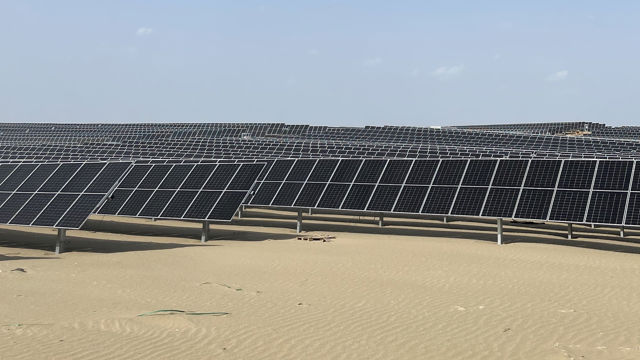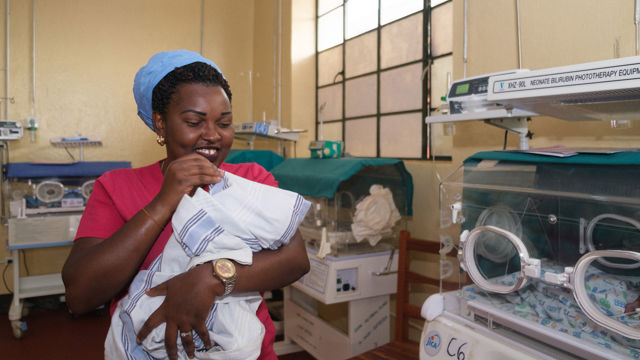Energy – an important driving force in achieving the SDGs
Access to sustainable energy solutions at an affordable price is paramount for economic and social growth and development. Access to energy is a prerequisite for education, health services and job creation. Increased use of renewable sources of energy is crucial in reducing greenhouse gas emissions.
What
Norwegian energy aid will help achieve the sustainability goal (SDG) no. 7 – Ensure access to affordable, reliable, sustainable and modern energy for all and SDG 13 – Climate action. At Norad, we work to achieve these goals by promoting improved access to energy, streamlining energy consumption and accommodating a sustainable transition from fossil to renewable energy.
Why
Today, nearly 700 million people lack access to electricity. 2.1 billion people live without access to modern cooking solutions, using traditional energy sources such as wood and coal. Many countries of the global south are not only vulnerable to climate change, but also need to develop energy access to allow for the establishment of new businesses and industries.
How
Norad works to improve access to renewable energy through three main tracks: improving access to energy from national power grids and distributed solutions such as smaller solar systems and modern food storage solutions, facilitating increased development of renewable energy and increased knowledge and capacity on the part of national authorities in partner countries.
Facilitating the emergence of new businesses that offer innovative solutions for improved and more effective access to energy is an important priority. Norad supports risk-mitigating measures and advice for businesses, both directly and indirectly through e.g. the business support scheme and partners such as the African Bank, the Nordic green bank Nefco, the Nordic Development Fund and the German developer GIZ, and others.
Norad also contributes to initiatives that guarantee investments in emerging markets. Guarantees are an important and sought-after instrument when it comes to relieving risk on the part of businesses and reducing capital costs. Norwegian funding goes to the World Bank’s Multilateral Investment Guarantee Agency (MIGA) and African Trade & Investment Development Insurance (ATIDI) among others. The development of a Norwegian government guarantee scheme for renewable energy has also been adopted.
The work on capacity-building with national authorities falls under the Energy for Development programme (Efu). The programme delivers expertise through Norwegian public sector bodies such as the Norwegian Water Resources and Energy Directorate, the Norwegian Environment Agency and many more.
Who/Where
In line with the Norwegian government’s priorities, Norad has a particular focus on sub-Saharan Africa, where the majority of the world’s population without access to power and modern energy for cooking live. As of 2024, Energy for Development prioritises six specific countries: Malawi, Mozambique, Nigeria, Nepal, Somalia and Tanzania. Norad also supports projects in other parts of the world, especially through multilateral stakeholders such as the World Bank.
Each year, the Section for Energy publishes calls for proposals for business support through Norad's “Enterprise support scheme for renewable energy”. New calls for proposals are normally published in December or January.
Links
- Mozambique and Norway - 40 Years of Energy Cooperation
- Norway - Uganda 25 years of Energy Cooperation (Norwegian)
- Norwegian Energy Cooperation with Bhutan
- 50 Years of Energy Cooperation Tanzania - Norway
- Nepal – Norway 60 Years of Energy Cooperation
- The Clean Energy Initiative Results Report 2007–2015
Partners
- Partners within this sector include the World Bank, the Asia Bank, the African Development Bank, the German aid provider GIZ, the green Nordic bank NEFCO and many more.
Contact
For more information, please contact Section for Energy.

